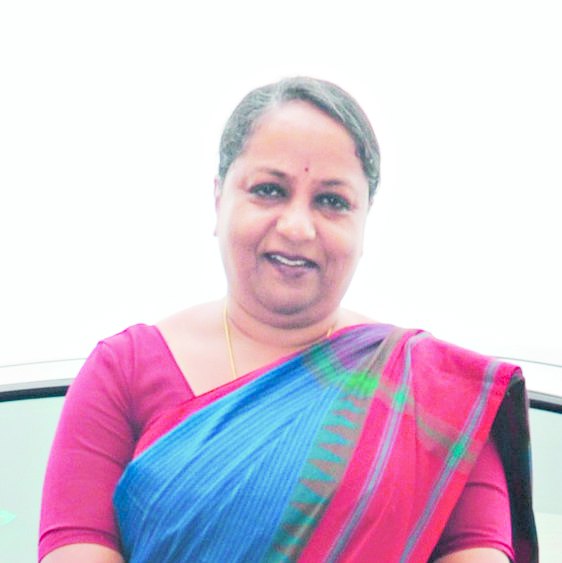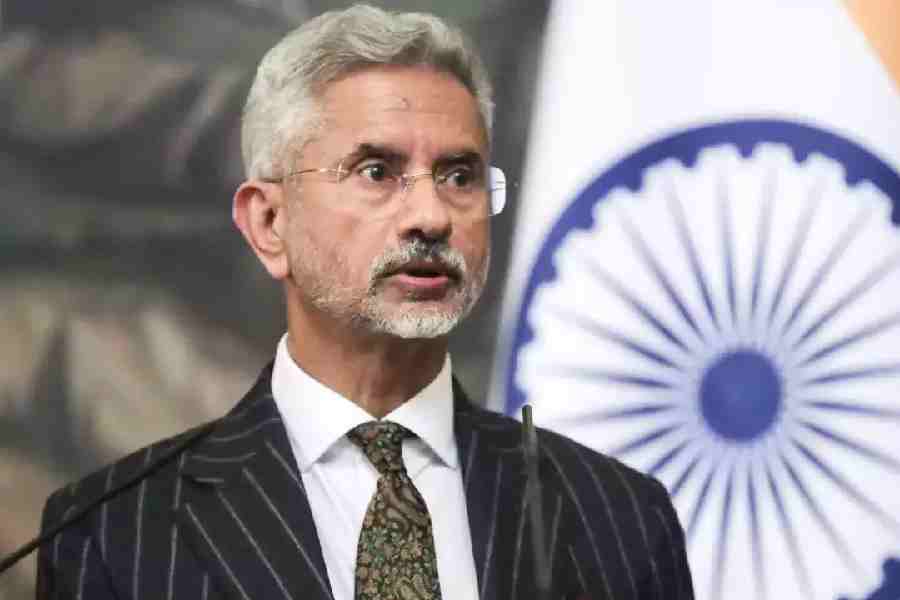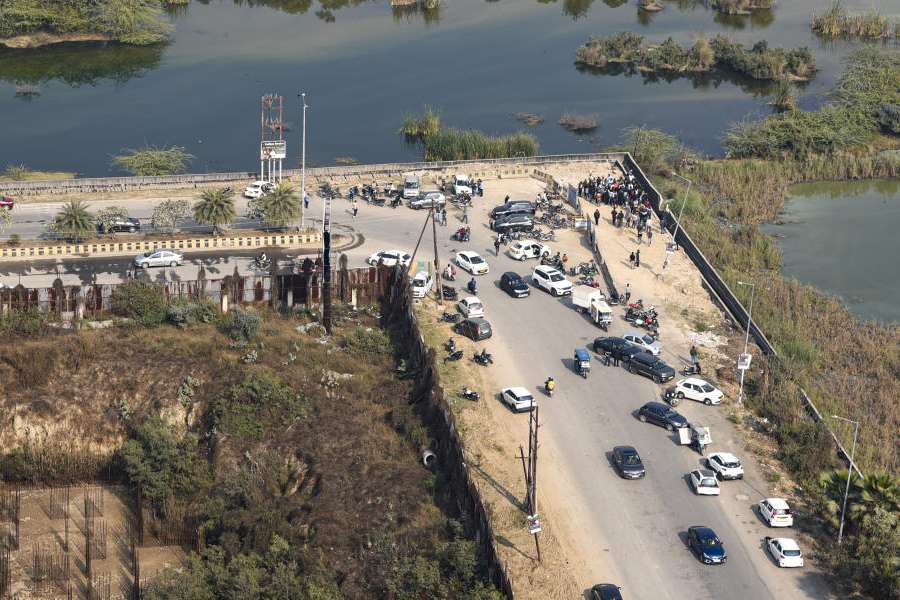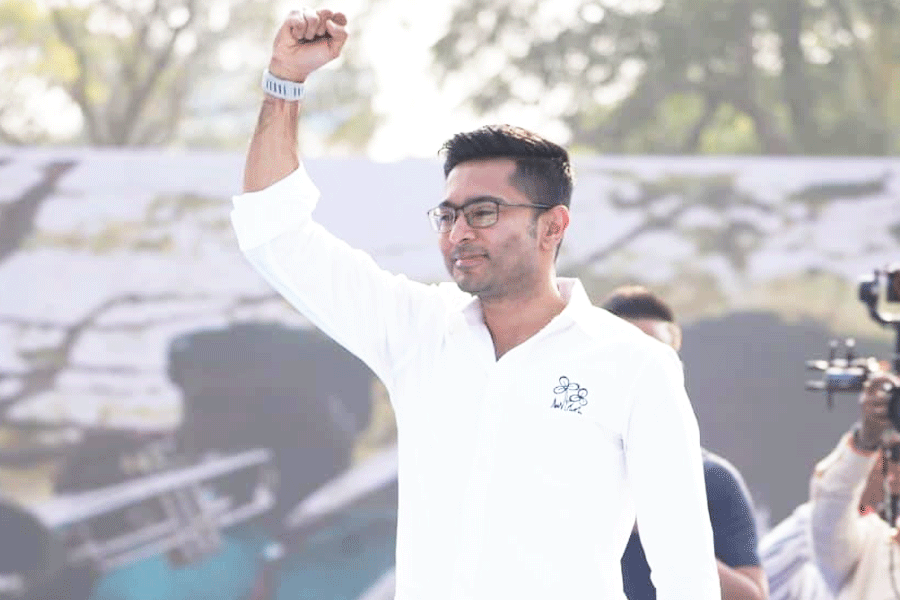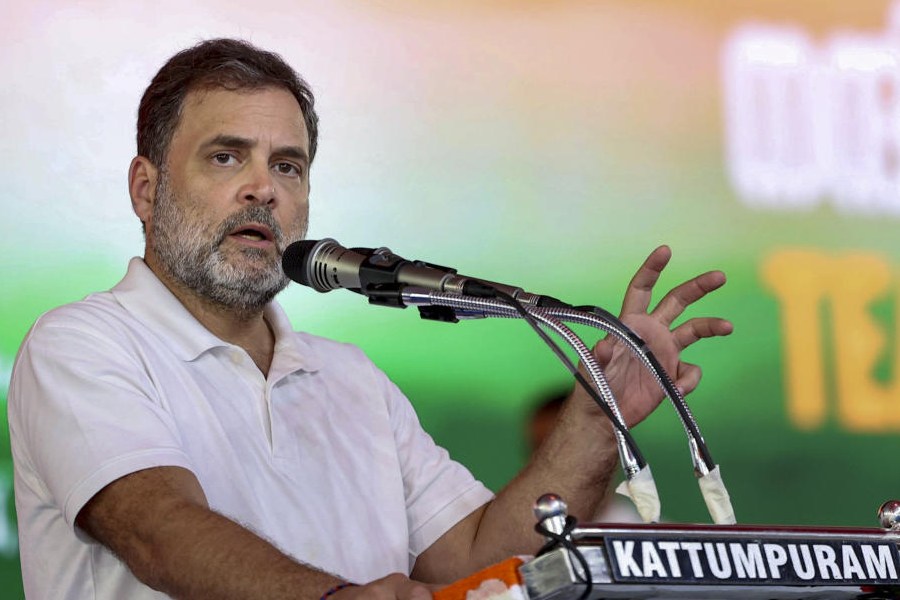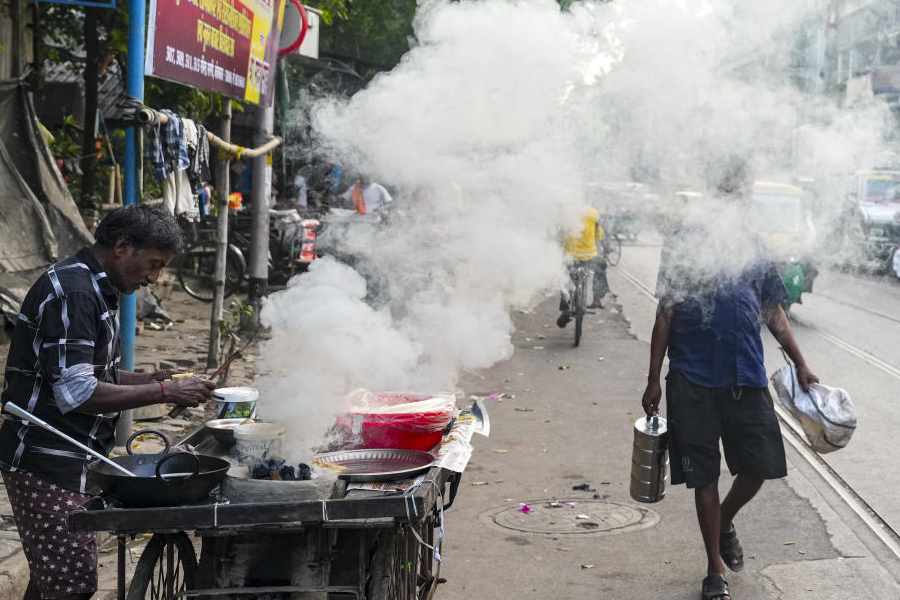
Sujatha
New Delhi, Jan. 29: Institutions are larger than individuals, ousted foreign secretary Sujatha Singh wrote in an emotional note to her colleagues - the parting jibe underscoring fissures in a stunned diplomatic establishment her successor S. Jaishankar will need to face.
The Narendra Modi government yesterday abruptly 'curtailed' Singh's tenure as foreign secretary - which was to last till July 31 - after a meeting of the appointments committee of the cabinet, replacing her with Jaishankar, India's ambassador to the US. Jaishankar took over as foreign secretary today.
'While individuals can and do play a critical role in building institutions, I believe that no individual is larger than the institution,' Singh wrote in the note she emailed to Indian Foreign Service colleagues late last night. 'It can never be about individuals. It has to be about institutions and how institutions interface and coordinate with each other.'
It is unclear whether the barb on individuals trumping institutions is aimed at Modi, who, in replacing Singh before her term was to end, has very publicly grabbed the reins of the foreign office.
Singh also rejected suggestions that the foreign office under her had failed to deliver on the Modi government's diplomatic priorities - a charge some have levelled. She claimed 'the most successful calendar of any new government's post-election foreign engagements'.
But Singh carefully pitched the successes of the external affairs ministry as that of the institution, not of individuals, effectively questioning the notion that a new individual at the helm of the foreign office could dramatically alter its fortunes.
'It is this inherent strength that has enabled MEA to rise consistently to the challenges presented to us - to prepare, to organise, to deliver and to follow up, on what has perhaps been the most charged, and indeed the most successful calendar of any new government's post election foreign engagements,' Singh wrote.
Singh is the fourth foreign secretary to have to quit mid-term - after Jagat Mehta in 1980, A.P. Venkateswaran in 1987 and S.K. Singh in 1990. Mehta, appointed by the Janata Party government, was removed by Indira Gandhi when she returned to power in 1980, and S.K. Singh by V.P. Singh. None of them is known to have written such a note.
Venkateswaran's exit was the most humiliating - a year after then Prime Minister Rajiv Gandhi had picked him over his senior, K.P.S. Menon Jr, the Prime Minister told a media gathering the country would soon have a new foreign secretary. Venkateswaran quit the next day, and Rajiv Gandhi summoned Menon Jr back from Beijing to take over as foreign secretary. Menon Jr remains the sole foreign secretary to take over from a junior officer.
But unlike Venkateswaran, Sujatha Singh did not resign on her own even after the Modi government nudged her to quit, in private, officials said.

S Jaishankar takes charge as foreign secretary in New Delhi on Thursday. Picture by Prem Singh
In early January, before US President Barack Obama's visit to India, Singh was prodded with an offer - the government would give her a constitutional post if she resigned from the position of foreign secretary.
A constitutional post - membership on the Central Information Commission or the Union Public Service Commission - would have come with an extended tenure till she turned 65.
Singh, who will turn 61 in July, replied that she needed three days to decide. But in the end, she turned down the offer - in the belief, an official close to her said, that the government would respect her decision.
'Neither she nor others expected she would actually be pushed out this way, so unceremoniously,' the official said. 'She thought her decision would be respected, and she would be allowed to complete her term.'
But by evening, Singh's note had triggered debate within the foreign office, splitting opinion despite the near-unanimous acknowledgement of Jaishankar's calibre as a top diplomat, because the note hits at two key arguments widely being made to justify her sacking.
Although few expect any public dissent against the Prime Minister's move by current diplomats, officials recognise that one of Jaishankar's earliest tasks as foreign secretary will be to restore institutional confidence in officers, and refocus them on diplomacy - rather than this controversy.
Modi's decision to shunt Singh out of South Block mid-term is believed to be rooted in the Prime Minister's personal equation with Jaishankar.
The Prime Minister, officials said, also deeply respected Jaishankar's manoeuvring of India-US ties in the aftermath of the chill following the arrest of diplomat Devyani Khobragade in December 2013.
'She (Singh) has basically argued that the institution of the foreign secretary and the ministry should matter more than an individual,' a mid-level diplomat said. 'No one is questioning the new foreign secretary's abilities, but this move has the ability to leave the institution damaged.'
By linking her credentials over the past eight months under the Modi government to the overall successes of the foreign office, Singh has also effectively suggested that any accusation of failure represents an allegation on the entire ministry.
'It's a very cleverly written note,' another official said. 'She's basically rallying officials around her.'
Singh does enjoy the respect and sympathy of several junior officers. As foreign secretary, Singh would meet officers of the rank of directors and deputy secretaries - diplomats with just over a decade of experience - and seek out their concerns in a manner few of her predecessors did.

